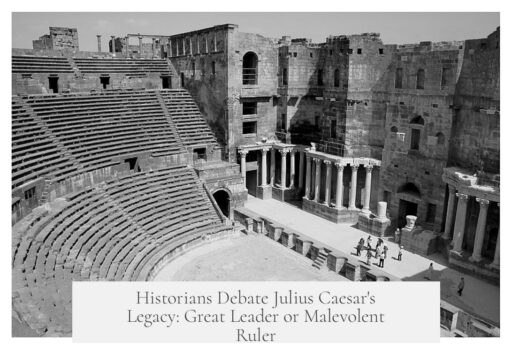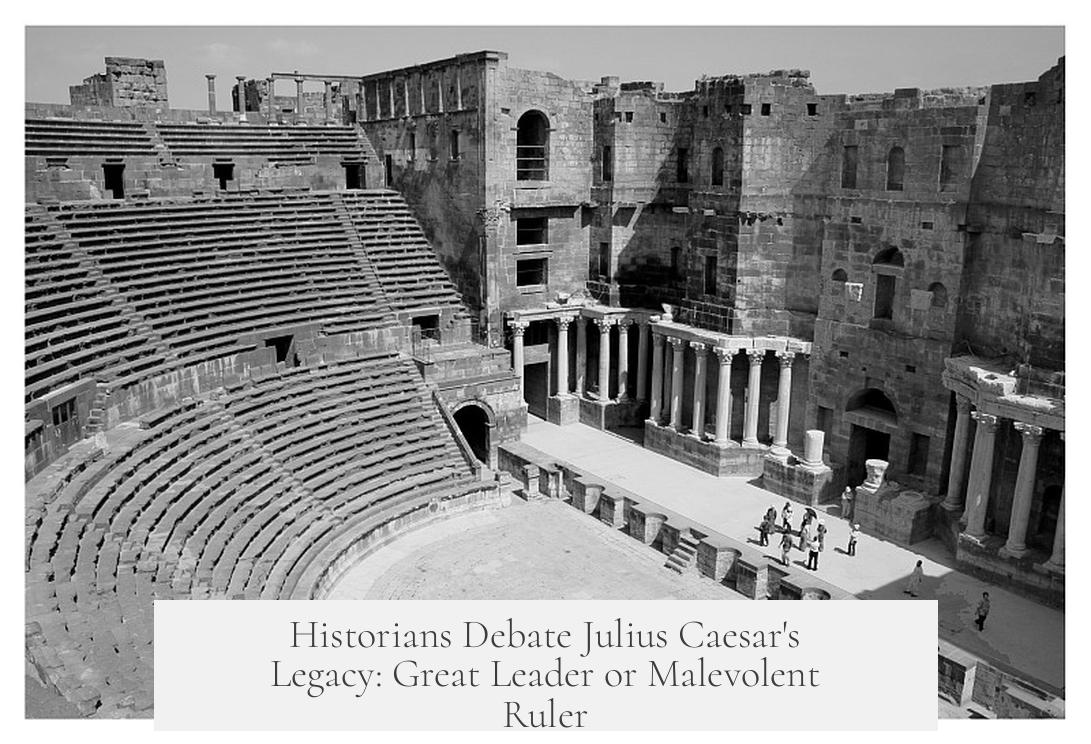Most historians view Julius Caesar as a complex and influential figure rather than categorizing him strictly as a great leader or an evil one. His legacy combines significant achievements and controversial actions. Evaluating Caesar involves understanding the shifting morals of his time and the modern era, as well as his multifaceted personality and political role.
Caesar’s importance in history is unquestioned. As a Roman general, statesman, and reformer, he expanded Roman territories through conquest and laid foundations that transformed Rome from republic to empire. His military campaigns, especially the Gallic Wars, brought vast wealth and added lands to Rome but also caused immense suffering. Estimates suggest that up to one million people may have died and another million enslaved during these wars. These facts evince the destructive nature of his conquests alongside the gains for Rome.
In Rome itself, Caesar guaranteed civil peace after a period of intense internal conflict. His tenure brought reforms that benefited the common people, such as debt relief, land redistribution, and calendar reform, some of which influenced Roman governance for centuries. This earned him popular support among many plebeians and soldiers. Nonetheless, aristocrats and elites often opposed him, fearing the concentration of power.
Caesar was never emperor, but he effectively consolidated power as “dictator for life” before his assassination in 44 BCE. His accumulation of authority, suppression of political rivals, and disruption of the republican order reflect autocratic tendencies. From a modern viewpoint, this centralization of power might resemble tyranny.
- Caesar’s leadership style was pragmatic, combining ruthlessness with clemency. He formed alliances when beneficial and exacted harshness where it suited his aims.
- Historians emphasize that judging Caesar as purely “good” or “evil” oversimplifies his character. He acted in self-interest but also contributed to Rome’s stability and expansion.
- The moral frameworks differ across centuries, making direct application of modern ethical standards problematic when assessing ancient figures.
- Roman citizens of his time held mixed views: many admired his reforms and military success, while others distrusted his power grab.
Historians often distinguish Julius Caesar the man from “Caesarism” — the system of autocratic rule that he symbolized, which later emperors institutionalized. This nuance helps separate his personal traits from the broader historical consequences of his rule.
Histories treat Caesar as an amoral figure navigating political power. He was neither wholly a villain nor a hero, but a leader shaped by ambition, circumstance, and Rome’s turbulent era.
For a detailed and balanced view, the biography *Life of a Colossus* presents an excellent neutral account of Caesar’s life and legacy.
“He was a person, and no person is black or white – we’re all shades of grey.”
Key takeaways on historians’ views of Julius Caesar:
- Recognized as a highly influential political and military leader with lasting impact on Rome.
- Viewed as neither fully good nor evil due to his complex character and actions.
- Praised for civil reforms and popular support among common people.
- Criticized for ruthless conquests, high casualties, and autocratic tendencies.
- Assessments depend on moral perspectives and historical context, making definitive judgment elusive.
1. How do historians reconcile Julius Caesar’s status as a great leader with his controversial actions?
Historians see Caesar as both influential and complex. He made lasting reforms and secured peace for Rome. Yet, he also led brutal wars and showed autocratic tendencies. His legacy mixes achievements with controversy.
2. Why is it difficult to label Julius Caesar as simply “good” or “evil”?
Caesar’s morality is hard to judge because values differ across time periods. His character has many sides—ruthless and generous, victorious and destructive. Historians agree he was neither purely good nor purely evil.
3. How did Caesar’s Roman contemporaries view him compared to modern historians?
Romans mostly saw him positively for reforms and stability. Modern views highlight the suffering caused by his wars and power grabs. This contrast shows evolving standards affect how his actions are judged.
4. What aspects of Julius Caesar’s leadership show both ruthlessness and clemency?
Caesar combined harshness with pragmatism. He was ruthless against enemies but showed clemency when it suited his aims. He formed alliances and crushed foes as needed to maintain control.
5. Is Julius Caesar considered a model leader by historians today?
Most historians avoid simple labels. They recognize his skill and impact but also see moral ambiguity. Caesar is viewed as a figure of shades of grey rather than a pure exemplar or villain.



